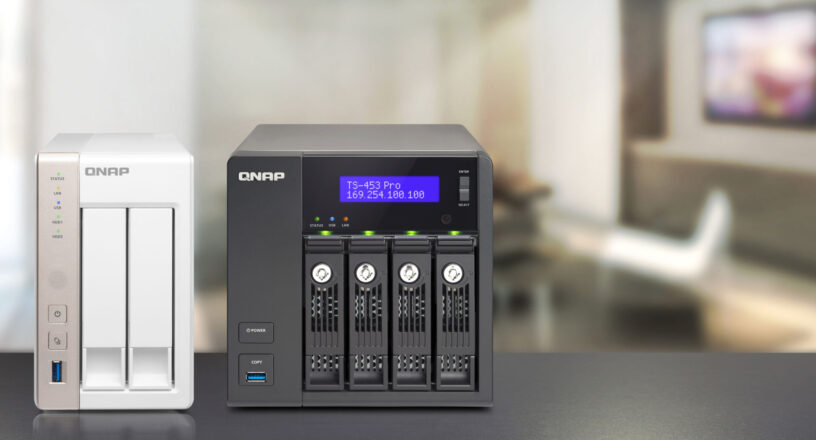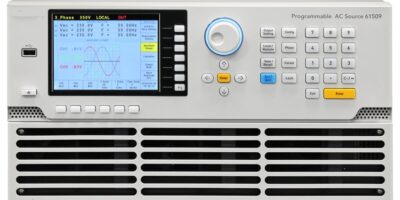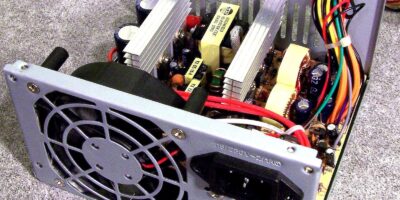Network Attached Storage (NAS) Market Analysis 2023 Dynamics, Players, Type, Applications, Trends, Regional Segmented, Outlook & Forecast till 2033
The Network attached storage (NAS) market size Value in 2022 is USD 20 Billion and is expected to reach USD 102.05 billion in 2032, growing at a CAGR of 17.7% during 2023 – 2032.
Introduction
Network Attached Storage (NAS) has become a critical component in the modern data management infrastructure. As organizations and individuals generate increasingly large amounts of data, the demand for efficient, scalable, and reliable storage solutions continues to rise. NAS provides a centralized storage solution that allows multiple users and devices to access data over a network, facilitating data sharing, backup, and collaboration. This comprehensive overview examines the NAS market’s current state, including its dynamics, technological advancements, segmentation, competitive landscape, consumer preferences, regulatory considerations, and future outlook.
1. Market Dynamics and Trends
1.1 Growth Drivers
The NAS market is experiencing robust growth, driven by several key factors:
1.1.1 Increasing Data Generation: The exponential growth of data generated by businesses, individuals, and IoT devices is a significant driver for the NAS market. Organizations across various sectors, including healthcare, finance, education, and media, require efficient storage solutions to manage and store vast amounts of data securely.
1.1.2 Rise of Remote Work and Collaboration: The shift towards remote work and the increasing need for collaboration tools have boosted the demand for NAS systems. NAS enables remote access to files and data, supporting distributed teams and facilitating seamless collaboration. Features like file synchronization, remote access, and cloud integration make NAS an essential tool for modern workplaces.
1.1.3 Demand for Data Security and Backup: Data security and backup are critical concerns for both businesses and individuals. NAS solutions offer robust data protection features, including RAID configurations, data encryption, and automated backup capabilities. These features address the growing need for secure data storage and protection against data loss or cyber threats.
1.1.4 Adoption of IoT and Big Data: The proliferation of Internet of Things (IoT) devices and the increasing focus on big data analytics have led to higher data storage requirements. NAS systems provide scalable storage solutions that can handle the vast amounts of data generated by IoT devices and support big data applications, driving their adoption in these emerging fields.
1.2 Challenges
Despite the growth drivers, the NAS market faces several challenges:
1.2.1 High Initial Costs: The initial cost of setting up a NAS system, including hardware, software, and network infrastructure, can be substantial. Small and medium-sized enterprises (SMEs) and individual users may find these costs prohibitive, impacting market penetration in these segments.
1.2.2 Complexity of Management: Managing a NAS system, particularly in large-scale deployments, can be complex. Tasks such as configuring network settings, managing user access, and ensuring data security require technical expertise. This complexity can pose a challenge for organizations without dedicated IT resources.
1.2.3 Competition from Cloud Storage: Cloud storage services offer an alternative to NAS, providing scalable storage solutions with minimal upfront costs. The convenience and flexibility of cloud storage, along with features like automatic backups and global access, present significant competition to NAS systems, particularly for smaller businesses and individual users.
2. Technological Advancements
2.1 Innovations in NAS Technology
2.1.1 High-Capacity Drives and SSD Integration: Advancements in storage technologies, such as high-capacity hard drives and solid-state drives (SSDs), have significantly enhanced the performance and capacity of NAS systems. SSD integration, in particular, offers faster data access speeds, lower latency, and improved reliability, making NAS more efficient and suitable for demanding applications.
2.1.2 Multi-Gigabit and 10GbE Networking: The introduction of multi-gigabit (e.g., 2.5GbE, 5GbE) and 10-gigabit Ethernet (10GbE) networking technologies has improved the data transfer speeds of NAS systems. These advancements allow for faster file transfers, reduced latency, and better support for high-performance applications, enhancing the overall user experience.
2.1.3 Enhanced Data Management Features: Modern NAS systems offer advanced data management features, including deduplication, compression, and tiered storage. These features optimize storage efficiency, reduce redundancy, and improve overall performance. Additionally, features like automated backup, snapshot management, and cloud synchronization enhance data protection and accessibility.
2.1.4 Integration with AI and Machine Learning: The integration of artificial intelligence (AI) and machine learning (ML) technologies in NAS systems is an emerging trend. AI-powered NAS solutions can provide intelligent data management, predictive analytics, and automated insights, improving efficiency and enabling proactive data protection measures.
2.2 Software and Services
2.2.1 NAS Operating Systems: The development of specialized NAS operating systems, such as Synology DSM, QNAP QTS, and TrueNAS, has improved the functionality and user experience of NAS systems. These operating systems offer intuitive interfaces, advanced features, and a wide range of applications, making NAS more accessible and versatile.
2.2.2 Cloud Integration and Hybrid Solutions: The integration of cloud services with NAS systems has become increasingly important. Hybrid NAS solutions, which combine on-premises NAS with cloud storage, offer the benefits of both worlds, providing local storage for fast access and cloud storage for scalability and remote access. This integration supports flexible data management and disaster recovery strategies.
3. End-User Industry
NAS systems serve various industries, including:
3.3.1 IT and Telecommunications: The IT and telecommunications sector requires robust storage solutions to manage vast amounts of data, including customer records, network logs, and digital assets. NAS systems provide scalable storage and support for virtualization, cloud integration, and data protection.
3.3.2 Healthcare: The healthcare industry generates significant amounts of data, including electronic health records (EHRs), medical images, and patient information. NAS solutions offer secure and compliant storage for sensitive healthcare data, supporting data accessibility, backup, and disaster recovery.
3.3.3 Media and Entertainment: Media and entertainment companies produce and manage large volumes of digital content, including videos, music, and graphics. NAS systems provide high-capacity storage, fast data access, and media streaming capabilities, supporting content creation, editing, and distribution.
3.3.4 Education: Educational institutions require efficient data storage solutions for managing student records, educational resources, and research data. NAS systems offer centralized storage, collaboration tools, and data backup capabilities, enhancing data management and accessibility in educational settings.
3.3.5 Retail and E-Commerce: Retail and e-commerce businesses rely on NAS systems to store and manage transactional data, customer information, and digital assets. NAS provides reliable storage and data protection, supporting inventory management, customer analytics, and online sales operations.
3.3.6 Others: Other industries, including finance, government, and manufacturing, also utilize NAS solutions to meet their data storage and management needs. NAS systems offer flexible and scalable storage options, supporting various applications and data-intensive tasks.
Receive the FREE Sample Report of Network Attached Storage (NAS) Market Research Insights @ https://stringentdatalytics.com/sample-request/network-attached-storage-(nas)-market/11341/
Market Segmentations:
Global Network Attached Storage (NAS) Market: By Company
• ASUSTOR
• Avere Systems
• Broadberry Data Systems
• Buffalo Americas
• Cisco Systems
• DELL EMC
• D-Link Corporation
• Hitachi Data Systems Corporation
• Infortrend Technology
• NetApp
• Panasas
Global Network Attached Storage (NAS) Market: By Type
• Traditional NAS
• Scale-Out NAS
• Others
Global Network Attached Storage (NAS) Market: By Application
• Commercial
• BFSI
• Healthcare
• Government
• Media & Entertainment
• IT & Telecom
• Retail & Consumer Goods
• Others
Regional Analysis of Global Network Attached Storage (NAS) Market
All the regional segmentation has been studied based on recent and future trends, and the market is forecasted throughout the prediction period. The countries covered in the regional analysis of the Global Network Attached Storage (NAS) market report are U.S., Canada, and Mexico in North America, Germany, France, U.K., Russia, Italy, Spain, Turkey, Netherlands, Switzerland, Belgium, and Rest of Europe in Europe, Singapore, Malaysia, Australia, Thailand, Indonesia, Philippines, China, Japan, India, South Korea, Rest of Asia-Pacific (APAC) in the Asia-Pacific (APAC), Saudi Arabia, U.A.E, South Africa, Egypt, Israel, Rest of Middle East and Africa (MEA) as a part of Middle East and Africa (MEA), and Argentina, Brazil, and Rest of South America as part of South America.
Click to Purchase Network Attached Storage (NAS) Market Research Report @ https://stringentdatalytics.com/purchase/network-attached-storage-(nas)-market/11341/
4. Competitive Landscape
4.1 Key Players
The NAS market features a diverse range of key players:
4.1.1 Synology Inc.: Synology is a leading provider of NAS solutions, known for its versatile and user-friendly NAS operating system (DSM) and a wide range of NAS products catering to home users, SMEs, and enterprises. Synology’s focus on innovation and customer-centric solutions has solidified its position as a major player in the NAS market.
4.1.2 QNAP Systems, Inc.: QNAP offers a comprehensive portfolio of NAS solutions, including high-performance and scalable NAS systems for various applications. The company’s NAS operating system (QTS) and commitment to integrating advanced features, such as AI and IoT capabilities, have contributed to its strong market presence.
4.1.3 Western Digital Corporation: Western Digital (WD) is a prominent player in the storage industry, providing NAS systems under its WD and SanDisk brands. The company’s expertise in storage technologies and its range of consumer and enterprise NAS solutions make it a key competitor in the NAS market.
4.1.4 Netgear Inc.: Netgear offers a range of NAS solutions designed for home and small business users. The company’s ReadyNAS products provide easy-to-use storage solutions with features like automatic backup, remote access, and data protection, catering to the needs of SOHO setups and SMEs.
4.1.5 Other Players: Other notable players in the NAS market include Buffalo Technology, Seagate Technology, ASUSTOR Inc., and TerraMaster. These companies contribute to the competitive landscape through their unique offerings, technological innovations, and focus on specific market segments.
4.2 Market Share and Strategies
4.2.1 Market Share: The market share of leading NAS manufacturers is influenced by their product portfolios, technological advancements, and customer base. Companies like Synology and QNAP hold significant market shares due to their comprehensive NAS solutions and strong customer loyalty.
4.2.2 Strategic Initiatives: NAS manufacturers employ various strategies to maintain and grow their market presence. These strategies include product innovation, strategic partnerships, acquisitions, and expansion into new markets. For instance, Synology’s continuous development of its DSM operating system and QNAP’s focus on integrating AI and cloud services exemplify strategic initiatives that drive market growth.
5. Consumer Preferences and Behavior
5.1 Adoption Trends
5.1.1 Preference for Scalability and Flexibility: Consumers increasingly prefer NAS solutions that offer scalability and flexibility to accommodate growing data storage needs. The ability to expand storage capacity, integrate with cloud services, and support various applications makes NAS an appealing choice for both businesses and individuals.
5.1.2 Demand for User-Friendly Interfaces: The demand for intuitive and user-friendly interfaces in NAS systems is rising, particularly among home users and SMEs. NAS manufacturers focus on providing easy-to-navigate interfaces, comprehensive tutorials, and customer support to enhance the user experience and simplify NAS management.
5.2 Demand Shifts
5.2.1 Impact of Remote Work: The shift towards remote work has significantly influenced NAS adoption. The need for remote access to data, secure file sharing, and collaboration tools has driven demand for NAS solutions that support these capabilities. This trend is expected to continue as remote work becomes more prevalent.
5.2.2 Influence of Data Security: Data security concerns play a crucial role in consumer behavior. Features such as data encryption, multi-factor authentication, and secure remote access are increasingly sought after by consumers. NAS solutions that prioritize data protection and compliance with security standards are more likely to attract customers.
5.2.3 Technological Advancements: Continuous advancements in NAS technology, including support for multi-gigabit networking, SSD caching, and AI integration, attract consumers seeking the latest innovations in storage solutions. This trend underscores the importance of ongoing R&D efforts to meet evolving consumer expectations.
6. Regulatory and Environmental Considerations
6.1 Regulations
6.1.1 Data Protection and Compliance: NAS manufacturers must comply with various data protection regulations, such as the General Data Protection Regulation (GDPR) in Europe and the California Consumer Privacy Act (CCPA) in the United States. Compliance with these regulations ensures that NAS solutions meet data privacy and security requirements, supporting their adoption in regulated industries.
6.1.2 Trade Policies: Trade policies, including tariffs and import/export regulations, can impact the NAS market by affecting supply chains and production costs. NAS manufacturers must navigate these policies to optimize their operations and maintain competitiveness in the global market.
6.2 Sustainability
6.2.1 Environmental Impact: The environmental impact of NAS manufacturing, including energy consumption and electronic waste, is a growing concern. Efforts to develop more sustainable production processes, reduce power consumption, and improve recyclability are critical for reducing the environmental footprint of NAS systems.
6.2.2 Recycling and Disposal: Proper recycling and disposal of NAS systems and components are essential to mitigate electronic waste and environmental pollution. NAS manufacturers are exploring ways to improve the recyclability of their products and develop eco-friendly disposal methods to address these challenges.
7. Future Outlook and Opportunities
7.1 Market Forecast
7.1.1 Growth Projections: The NAS market is expected to continue its growth trajectory over the next 5-10 years, driven by increasing data generation, the rise of remote work, and the adoption of digital technologies. Market forecasts indicate a compound annual growth rate (CAGR) that reflects strong demand for scalable and secure storage solutions.
7.1.2 Emerging Applications: The expansion of NAS technology into new applications, such as edge computing, AI-driven data analytics, and smart home solutions, presents significant growth opportunities. The development of hybrid NAS systems that combine on-premises and cloud storage capabilities is likely to drive innovation in these emerging fields.
7.2 Emerging Opportunities
7.2.1 Edge Computing and IoT: The growth of edge computing and IoT applications creates new opportunities for NAS systems. NAS solutions can provide local storage and data processing capabilities at the edge, supporting real-time data analysis and reducing latency for IoT devices and applications.
7.2.2 AI and Machine Learning Integration: The integration of AI and machine learning technologies in NAS systems offers promising opportunities for intelligent data management, predictive analytics, and automated insights. AI-powered NAS solutions can enhance efficiency, improve data protection, and provide valuable business intelligence.
7.2.3 Expansion into Smart Home Solutions: NAS systems are increasingly being integrated into smart home ecosystems, providing centralized storage for media, security footage, and smart device data. The development of NAS solutions that seamlessly integrate with smart home platforms and devices presents a growing market opportunity.
About Stringent Datalytics
Stringent Datalytics offers both custom and syndicated market research reports. Custom market research reports are tailored to a specific client’s needs and requirements. These reports provide unique insights into a particular industry or market segment and can help businesses make informed decisions about their strategies and operations.
Syndicated market research reports, on the other hand, are pre-existing reports that are available for purchase by multiple clients. These reports are often produced on a regular basis, such as annually or quarterly, and cover a broad range of industries and market segments. Syndicated reports provide clients with insights into industry trends, market sizes, and competitive landscapes. By offering both custom and syndicated reports, Stringent Datalytics can provide clients with a range of market research solutions that can be customized to their specific needs.
Reach US
Stringent Datalytics
+1 346 666 6655
Social Channels:




Leave a Reply